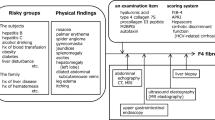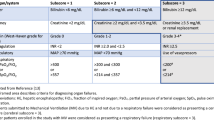Abstract
Objective
We aim to study outcomes in liver transplant recipients with body mass index (BMI) ≥50 using the United Network for Organ Sharing (UNOS) database.
Methods
We reviewed patients undergoing liver transplantation recorded in the UNOS database from 1988 to 2013. Of 104,250 liver transplant procedures, 123 were performed on super obese patients.
Results
Sixty-four percent of the super obese patients are female (64 %) and had a mean age 47 years (20–71). The mean BMI was 53.5 (50–72.86) and 16 % had diabetes. The mean Model for End-Stage Disease (MELD) score at transplant was 29.1 (6–53). It was found that BMI ≥50 increased 1.6-fold the risk of death within 30 days after liver transplantation. Graft failure was increased by 52 % and overall mortality was by 62 %. A 1:1 propensity score-matched analysis demonstrated that patients with BMI <50 have significantly better graft and overall patient survival than the super obese.
Conclusions
Overall, our data shows that BMI ≥50 is an independent predictor of perioperative mortality and graft and overall patient survival. Further studies are necessary to better understand predictors of outcomes in super obese patients.



Similar content being viewed by others
References
Sturm, R. and A. Hattori (2013) Morbid Obesity Rates Continue to Rise Rapidly in the US. International journal of obesity (2005), 37(6): 889–891.
Pi-Sunyer, F.X., Comorbidities of overweight and obesity: current evidence and research issues. Med Sci Sports Exerc, 1999. 31(11): S602-8.
Reichman, T.W., et al., “Weighing the risk”: Obesity and outcomes following liver transplantation. World Journal of Hepatology, 2015. 7(11): 1484–1493.
Thuluvath, P.J., Morbid obesity and gross malnutrition are both poor predictors of outcomes after liver transplantation: What can we do about it? Liver Transplantation, 2009. 15(8): 838–841.
Vernon, G., A. Baranova, and Z.M. Younossi, Systematic review: the epidemiology and natural history of non-alcoholic fatty liver disease and non-alcoholic steatohepatitis in adults. Alimentary Pharmacology & Therapeutics, 2011. 34(3): 274–285.
Nguyen, N., et al., A Review of Unmet Needs in Obesity Management. Obesity Surgery, 2012. 22(6): 956–966.
Ford, E.S., W.H. Giles, and W.H. Dietz, Prevalence of the metabolic syndrome among US adults: findings from the third National Health and Nutrition Examination Survey. JAMA, 2002. 287(3): 356–9.
Singhal, A., et al., Impact of recipient morbid obesity on outcomes after liver transplantation. Transpl Int, 2015. 28(2): 148–55.
Thereaux, J., et al., Five-year outcomes of gastric bypass for super-super-obesity (BMI>/=60 kg/m(2)): a case matched study. Surg Obes Relat Dis, 2015. 11(1): 32–7.
Pelletier, S.J., et al., Survival benefit of kidney and liver transplantation for obese patients on the waiting list. Clin Transpl, 2003: 77–88.
Pelletier, S.J., et al., Effect of body mass index on the survival benefit of liver transplantation. Liver Transpl, 2007. 13(12): 1678–83.
Nair, S., et al., Effects of obesity, diabetes, and prior abdominal surgery on resource utilization in liver transplantation: a single-center study. Liver Transpl, 2009. 15(11): 1519–24.
Gunay, Y., et al., Living donor liver transplantation for obese patients: challenges and outcomes. Liver Transpl, 2014. 20(3): 311–22.
Authorship
Substantial contributions to the conception or design of the work, or the acquisition, analysis, or interpretation of data for the work were performed by JA, XM, MD, MS, AG, JB, FM, and RG
Drafting the work or revising it critically for important intellectual content was performed by JA, XM, MD, MS, AG, JB, FM, and RG
Data was analyzed by XM.
Final approval of the version to be published was performed by JA, XM, MD, MS, AG, JB, FM, RG
Agreement to be accountable for all aspects of the work was agreed by JA, XM, MD, MS, AG, JB, FM, RG.
The final version was approved by all authors.
Author information
Authors and Affiliations
Corresponding author
Rights and permissions
About this article
Cite this article
Alvarez, J., Mei, X., Daily, M. et al. Tipping the Scales: Liver Transplant Outcomes of the Super Obese. J Gastrointest Surg 20, 1628–1635 (2016). https://doi.org/10.1007/s11605-016-3185-0
Received:
Accepted:
Published:
Issue Date:
DOI: https://doi.org/10.1007/s11605-016-3185-0




